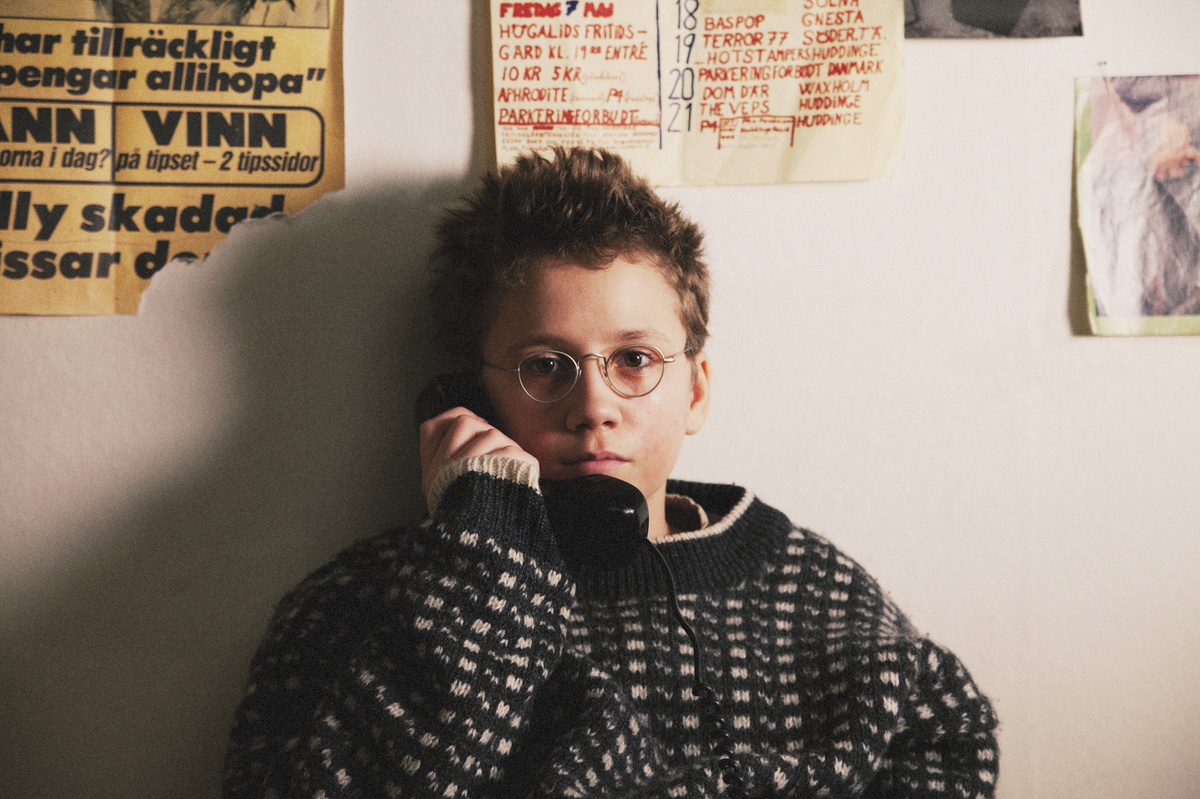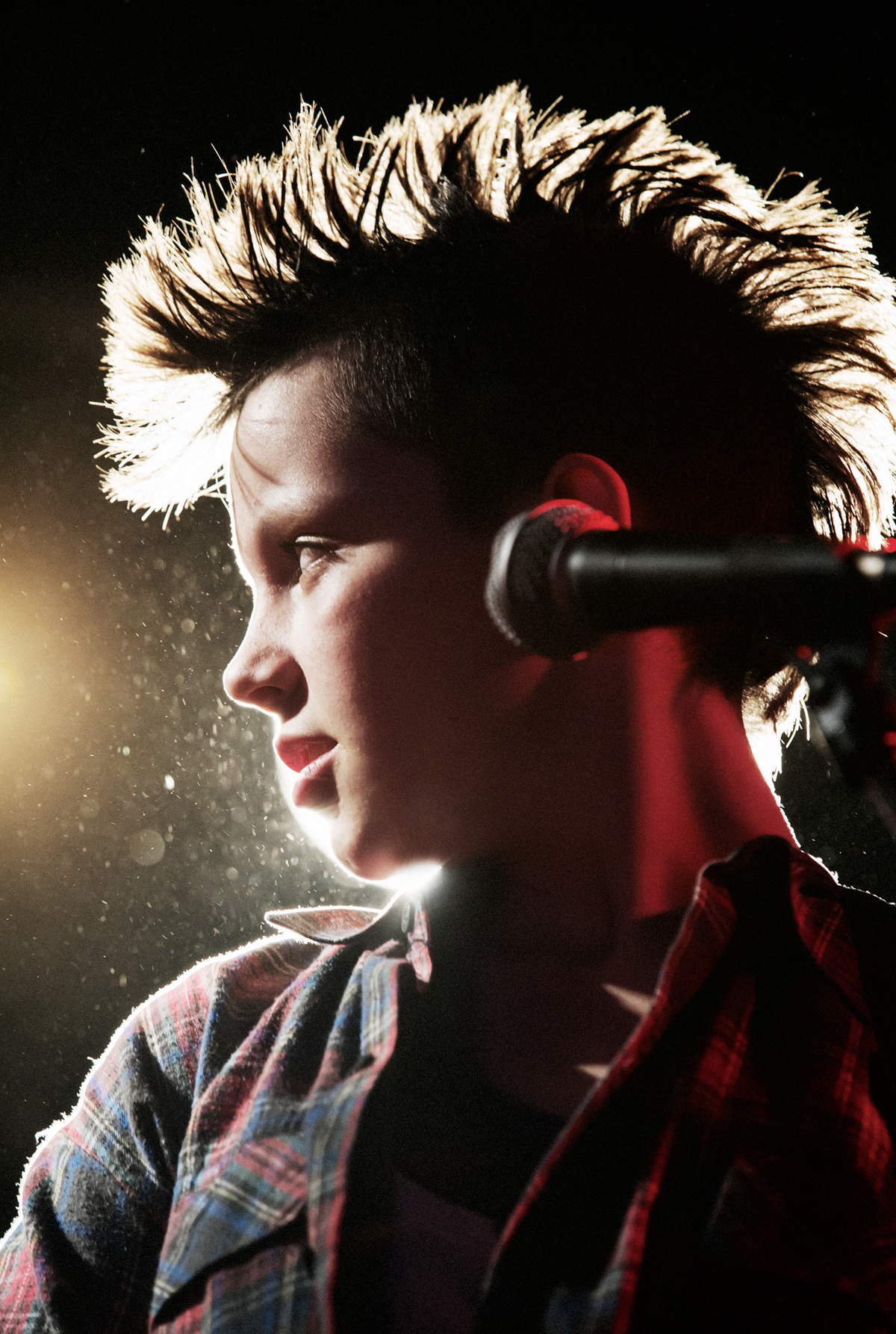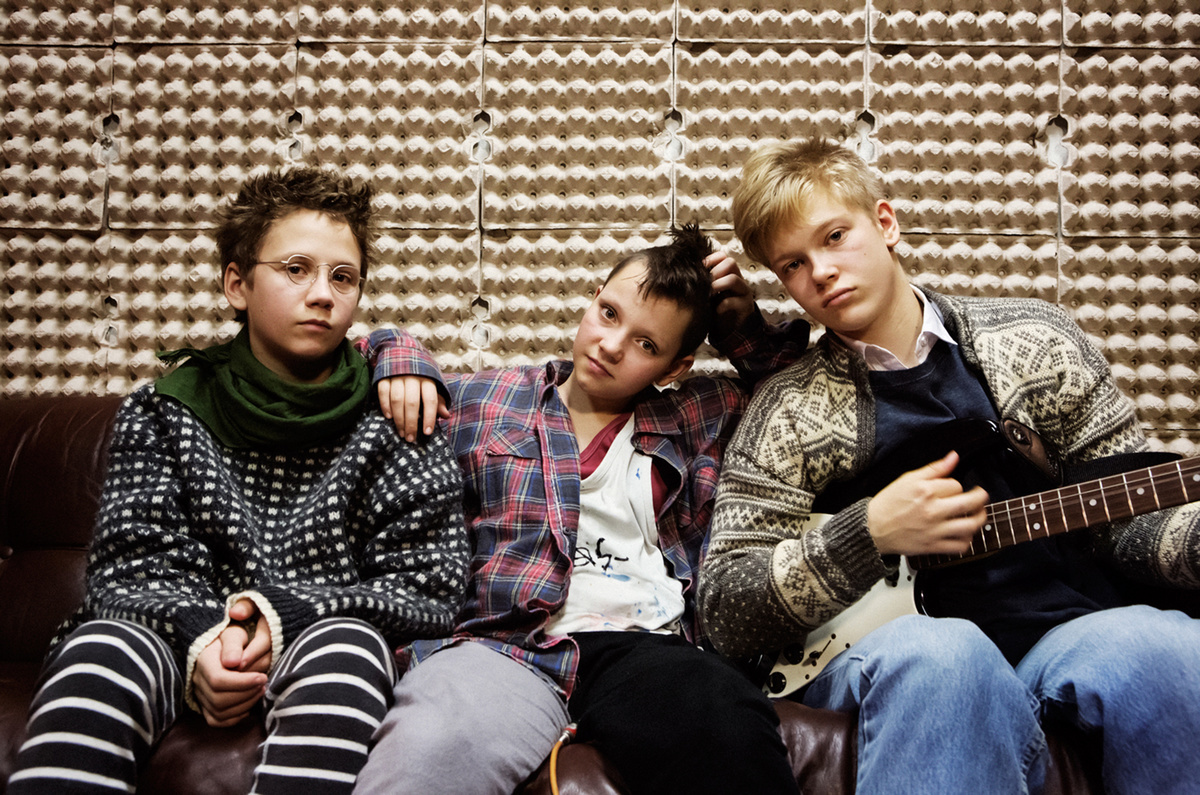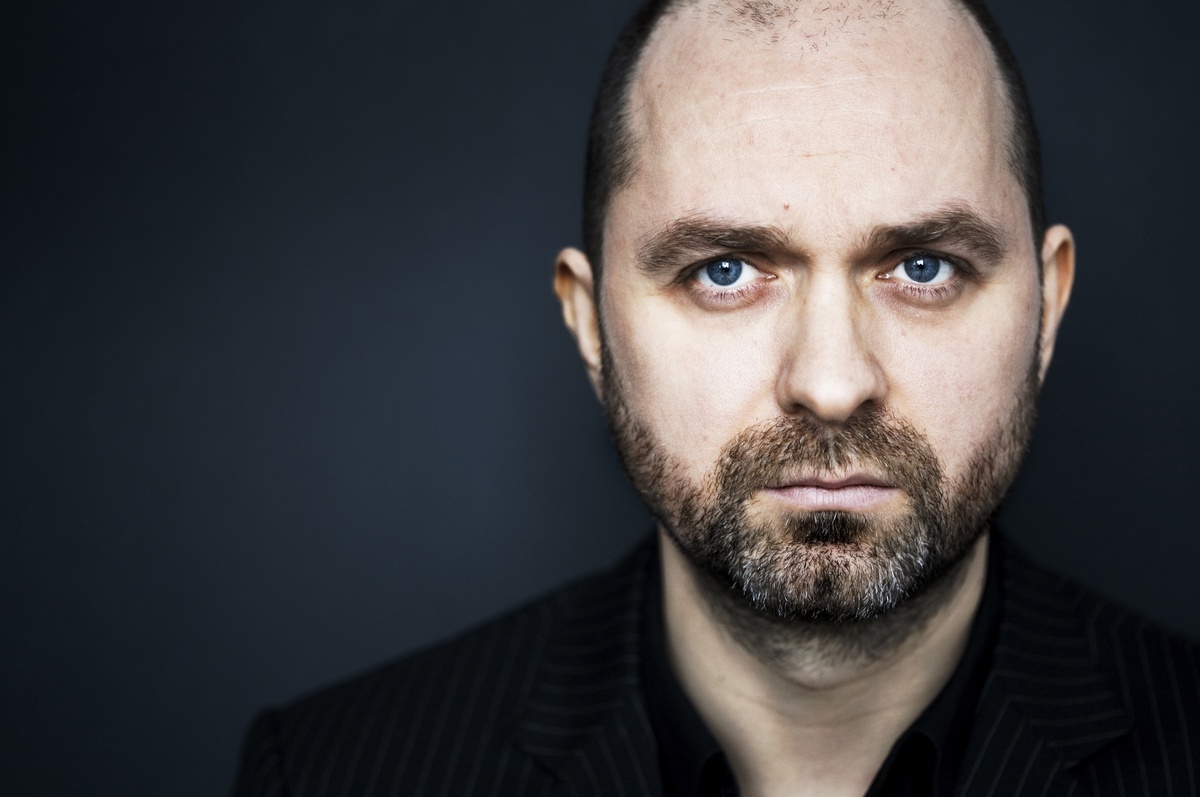On Lukas Moodysson’s Tumblr page, alongside GIFs of Rihanna and The Cure, artful shots of his cluttered-artist home in Sweden and promo-shots of his new film We Are the Best!, there lies a quote from the American author Mark Twain: “Whenever you find yourself on the side of the majority, it is time to pause and reflect.”
Moodysson is intent on defining himself against the crowd. His Wikipedia page begins with the words “Born in Lund, Moodysson grew up in karp, Skåne County as an outcast, expressing himself through poetry.” He is an avowed socialist, feminist and Christian, all at once.
We meet in London on a Monday morning. He’s dressed all in black, a wide-brimmed fedora on his head, his fingers adorned in rings. On the Saturday night he saw The Cure at the Royal Albert Hall, and it’s difficult to work out whether he came to London to promote his new film – an adaption of his wife’s comic strip, about three just-teenage girls who form a punk band in 1980s Stockholm – or just for a Mecca-like pilgrimage for Robert Smith. Asked what he thought of the gig, Moodysson says: “I can’t talk about it, it’s too difficult. He’s just too important to me.”
Moodysson was making feature films from his mid-twenties; his breakthrough was the 1998 film Fucking Amal (aka Show Me Love), following the frustrations of an adolescent, sexually-confused girl in a provincial Swedish town. He followed it up with Together (2000), about how idealism and reality mesh in a 1970s hippy commune. Then he went dark; Lilya 4-Ever (2002), an unflinching account of an Estonian victim of human trafficking, and the esoteric Mammoth, about modern family life in the interconnected age.

We Are the Best! is about teenage life. What were you like as a teenager?
I was many different people as a teenager. Punk was important to me as a 12-year-old. But I was too late for punk, even then. I was 12 in 1981, and punk had died by then. In my age, I had only one friend who listened to punk; everyone else was boring and mainstream. The only other people to listen to punk were 15 and 16, but they were too tough for us. There was too much alcohol and destroying things, and we weren’t ready for that. We were trying to go to concerts, but they would only let us stand at the back. I couldn’t describe it in those days, but I found punk was so masculine, so male. It was supposed to be anti-establishment but actually it began to mirror the establishment by being so male-dominated.
Female rights matter to you?
Of course. There is this LP they discuss in the film. That record is really funny; it’s a collection of Swedish punk bands that are all male, and on the front cover there’s a ‘punk’ cake, with cigarette butts thrown into the cake mixture to make it look really tough. And if you read the small print, it says, “Thankyou to Suzy for making the cake.” That was still the job of the women, even in punk; to make the cake.

Is punk still dominated by men?
I don’t know what punk is today. I can’t relate to other people’s opinion. But I will say there are a lot of female artists and singers, in Sweden and internationally, but there are very few female bands. I don’t know if it’s a male thing to bond together in a dirty basement somewhere – a rite of passage maybe – but female bands are very few.
Is punk dead?
I’m not nostalgic in the sense I still listen to The Sex Pistols. Punk like that is in the past. But at the same time there was something very refreshing and very meaningful about punk that is still alive today and is still with me with what I do today; it’s an attitude towards life, questioning things and not taking them for granted, not believing the first answer you get, not letting things stop you, trying not to care what other people think of you, and a healthy amateurism that allows you to create with freedom.

Do you still feel like an amateur?
Yes I do. I don’t have an aesthetic manifesto. I’m interested in people when they’re trying to do something, rather than people that have arrived, that have already achieved something. I like small-budget films when you can see the budget and the compromises and the half-finished things. If I’m listening to music, I answer to singers who have a crack in their voice rather than someone that sings like an angel.
You made a lot of short films as a student before Fucking Amal. What are they like, watching them back now?
Most of the films I made were for practice, lessons. I only made one film that felt like a film, and that was called Talk. I had written a script, and it actually had a lot of characters in it that then appeared in Fucking Amal. But at some point I decided to cut away the script and make a short film of one story in the script.

What was it like being on set for the first time?
I remember it just being anxiety. It was terrible. I spent the whole time thinking I couldn’t do it, that I wasn’t ever going to be a director. I didn’t know what to say to the actors, where to place the camera. But when the film was finished it felt ok at least. And there are some elements, and a tone I think, that I haven’t used enough in my feature films; maybe, if I live long enough to make more films, I may go back to it.
How do you see yourself as a director now?
Filmmaking is like going into a forest looking for mushrooms and finding raspberries. There are so many things that can affect a scene; you’re rolling something and thunder cracks overhead, or you find an actor that doesn’t at all act how you imagined the character. The process of making a film is like trying to tame an animal. It has a life of its own. I used to try and control it, to be a real director, know exactly what I want in every moment. But now I understand it’s not a bad thing for something to happen in a way different to how you imagined it. Now I like the scenes that surprised me the most. So now I treat the scriptwriter with a lot of disrespect; a writer is like a monk, very carefully writing every line. But a director has to bring that to life, to make it explode.

You’re openly a Christian and a socialist. How do you understand the tension between them those ideas?
I relate to the idea of tension. Life is always tension. There’s always ambivalence. And believing in something, whether it’s religious or political, is always about believing. It is never knowing for sure. I’m not a preacher. I get very irritated by both camps. Ambivalence, tension, creation, confusion; that’s where I feel at home.
Credits
Text Tom Seymour
